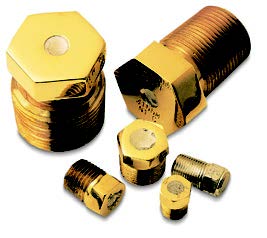Ammonia, in its various amounts of dilution, is a disastrous element. The anhydrous ammonia is classified as a toxic and dangerous gas for the environment. It can form explosive mixtures upon reaction with air (16-25%) as it is a flammable gas (autoignition temperature 651 °C). Ammonia reacts violently with halogens too. Due to such explosive nature of the gas, it is important to be very cautious about its storage & handling.
Handling Ammonia
- You must be certified to work with anhydrous ammonia.
- While working with ammonia, you must importantly wear goggles, gloves and breathing apparatus.
- It is vital to drain all tanks, piping, and hoses of anhydrous ammonia completely before installing, removing, or repairing any equipment.
- Have sufficient amount of water before working with ammonia.
Installing & Operating Ammonia Valves
- Ensure that the valve is turned off before installation & place it in a direction in relation to the flow.
- Apply a pipe thread sealant to a male pipe thread to be installed into a valve.
- Install the valve into a pipe or hose assembly and tighten it using a wrench.
- Before operating a valve, ensure that it is attached to appropriate piping & also that an appropriate valve is attached to the outside of the valve.
- Turn off any downstream valve that is open to prevent ammonia from spraying into the air.
- Never open the valve partially.
- Never leave the valve open unattended. It must be open only while in use.
Maintaining Ammonia Valves
- Check the valves regularly for any leaks.
- If you observe leaks, try to tighten the valve. If it doesn’t stop, replace with a new valve.
- Constantly observe if any of the valves have worn out and consider replacing the worn out valves at the earliest.
Source - https://www.jtcvalvesales.com/blog/how-to-install-handle-operate-ammonium-valves-safely/



